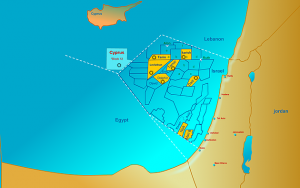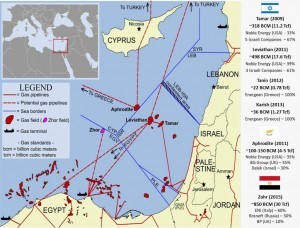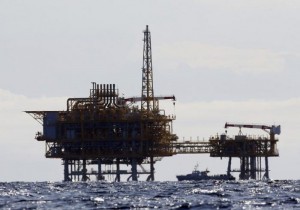Israel decided to proceed to the second round of concessions, a total of 25 “pieces” within its Exclusive Economic Zone (EEZ), at the end of 2018 or at the latest in early 2019, thus triggering a resurgence of international investment interest if the site is proven to host significant natural gas reserves.
According to the top Israeli geologist Miki Gardosh, one of the Israeli Ministry of Energy officials, and the well-known Oil & Gas Journal website, the individual “pieces” will be grouped into 3 or 4 “plots” to make the offer “more attractive for businesses”. In any case, as he noted during his recent visit to the U.S., this maritime region, which lies south of the Israeli EEZ, is promising and has not yet been thoroughly researched.
The interest of the energy industry in its previous attempt to attract interest when announcing the first round of concessions was particularly limited; for that reason Israel, according to a statement by Yuval Steinitz, the country’s Energy minister, as reported by Reuters news agency, is expected to modify the terms of the contracts in order to make them more attractive to businesses.
The allocation of “plots” to be explored is expected to take seven years, with a commitment for the underwriting companies to go through drilling for a three-year exploration of potentially rich hydrocarbon deposits. According to Miki Gardosh, “large quantities of oil are expected to be discovered in the near future,” as oil “depots” are located at a greater depth than natural gas.
If these expectations are verified, Israel will strengthen its position as a natural gas producer on the international scene, and it will now need to look for a more urgent solution to how to export the produced hydrocarbon quantities to Europe, that is via Egypt, Cyprus or Turkey through pipelines or in the form of liquefied natural gas (LNG).
Progress has been made in talks with Lebanon, too, according to statements by Israeli Energy Minister Yuval Steinitz at Reuters, who said that “some new ideas have been presented but beyond that, I cannot say anything more, as nothing has yet been agreed.” Since February, Lebanon has, despite the unfavourable climate in the region, granted two “plots” for exploration and exploitation to French Total SA, Italian Eni SPA and Russian OAO Novatek.
Source: balkaneu
Ask me anything
Explore related questions







